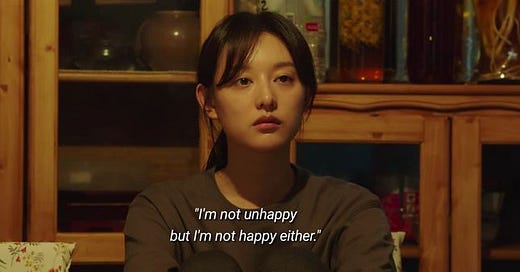essays & articles for feeling lost in your twenties
fragments on growing up, life, and being an adult
“He was still too young to know that the heart’s memory eliminates the bad and magnifies the good, and that thanks to this artifice we manage to endure the burden of the past. But when he stood at the railing of the ship and saw the white promontory of the colonial district again, the motionless buzzards on the roofs, the washing of the poor hung out to dry on the balconies, only then did he understand to what extent he had been an easy victim to the charitable deceptions of nostalgia.”
Love in the Time of Cholera (1985) by Gabriel García Márquez
I made this collection last week while going insane waiting for my biopsy results (fitting) and am sharing it in hopes that at least one of these resonates with you! As I go through the last of my health scares, I am hoping that rereading some of these articles will make me feel a bit better, so I am sharing them with you too. Here are around twenty articles about getting older and growing up, loneliness, true happiness, journaling, and falling in love.
(tip: if you do not have a subscription and wish to go over paywall, you can type in archive.is/newest/ in front of any url!)
Nostalgia Reimagined | Aeon
This is one of my favorite essays of all time. De Brigard explores nostalgia as a function of memory but also a function of the brain’s imagination; nostalgia does not always have to be true or autobiographical. I reread this a few days ago, and it takes on a whole new meaning in light of artificial intelligence being able to manufacture videos and transform pictures into something that has motion. It is scarily easy to create false memories in our minds. Nostalgia is quite literally defined as ‘acute homesickness’, and perhaps in the decade where we are perhaps most prone to major changes in life, it is a word that is deeply relevant and prevalent in our daily lives.
A Thin Line Between Mother and Daughter | Salon
(trigger warning: eating disorders)
Weirdly, my relationship with eating was fine until I hit my twenties. I turned twenty at home, a month after the pandemic started, and after I suddenly dropped a couple of pounds, my brain was capsized by societal beauty standards. I began to hate the reflection I saw on any mirrored surface and thus began this strange relationship I have with food. Jennifer Egan recounts her deeply personal relationship with food and her struggles with an eating disorder while exploring the societal background and changes regarding the ideal female body and eating habits through the decades—how this is generational and almost genetic or evolutionary.
Attitudes toward food are taught and learned, but once food becomes entangled with notions of good and evil, it can be nearly impossible to extricate. Nor can one give it up altogether. Eating disorders have become part of our culture, and they’ll multiply and reproduce with lives of their own.
Loved, Yet Lonely | Aeon
Kaitlyn Creasy writes about the deep set loneliness that seems inextricable from a good portion of our twenties. Why do we feel lonely even though we know that we are loved? Even if when we are surrounded by people? There is a difference between physical isolation and loneliness, although many conflate the two. Creasy explores this difference, stating that loneliness can always coexist with other social states and emotions such as love or camaraderie. I think about the distinction between loneliness and solitude/aloneness often, so much so that I wrote an essay about it last October. Here is my journal entry about it:
On Keeping a Notebook | Slouching Toward Bethlehem (essay collection)
The is one of the essays that changed my life. Joan Didion is one of my (and probably everyone’s) favorite essayists, and this one resonated so deeply with me. Didion writes about the purpose of keeping a notebook and how it is different from keeping a diary—a notebook should be for recording external observations such as various overheard conversations or random facts that you pick up throughout the day. A notebook should ideally feel like written notes about other people and your surroundings, but in reality, it should be about an evolution of how you perceive the world around you.
“Keepers of private notebooks are a different breed altogether, lonely and resistant rearrangers of things, anxious malcontents, children afflicted apparently at birth with some presentiment of loss.”






